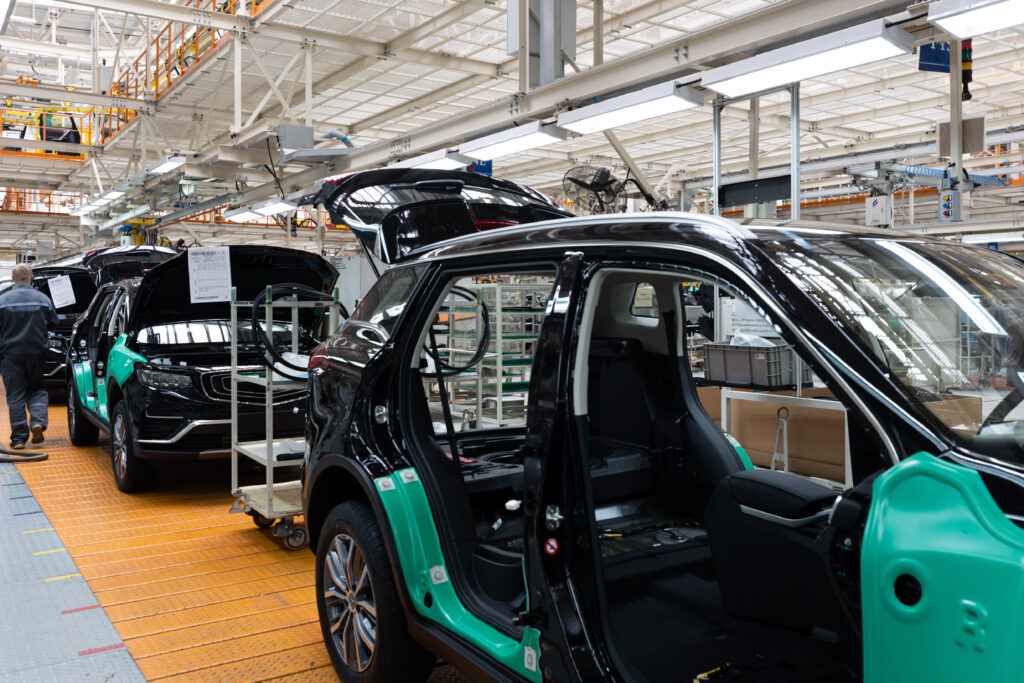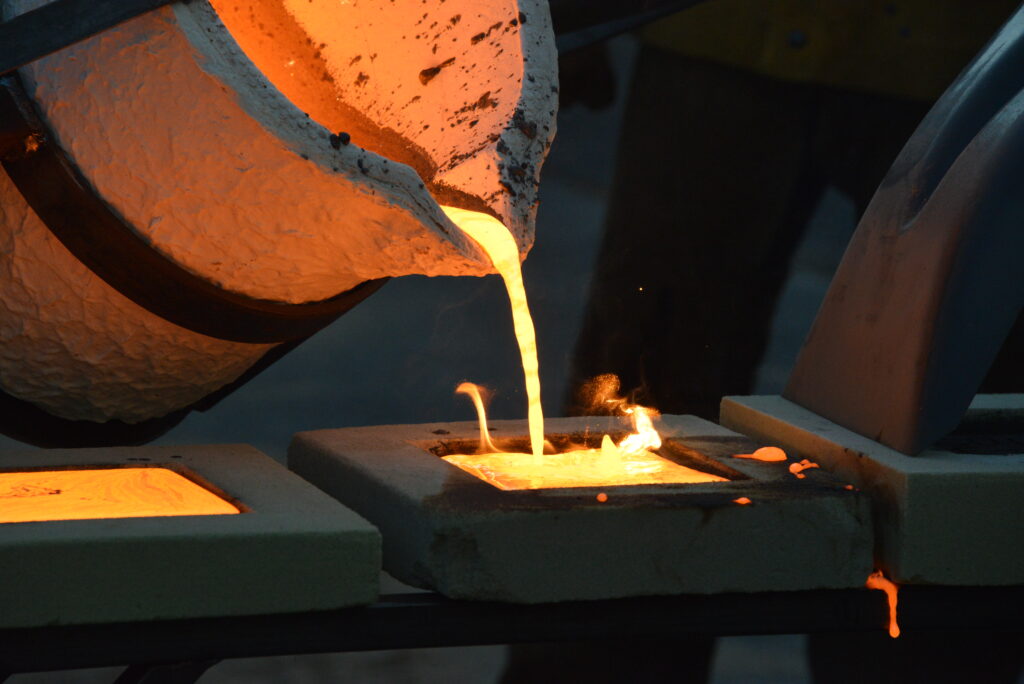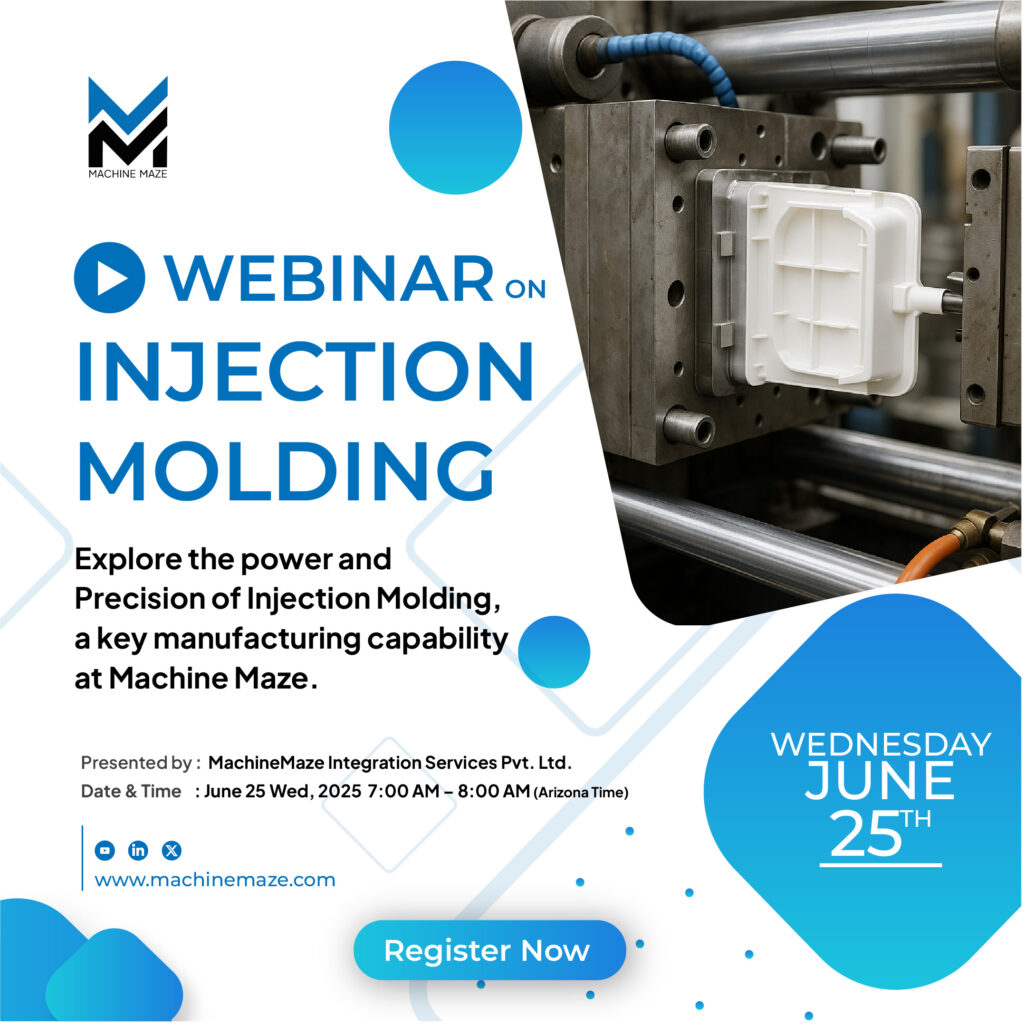Precision machining is the foundation of modern industrial production. It is required in every industry’s output. But, what exactly is precision machining and how is it shaping the modern production process?
What is Precision Machining?
Precision machining is a modern CNC machining process that develops parts using computer-controlled machine tools. This high-precision manufacturing technique combines sophisticated CNC (Computer Numerical Control) technology with expert craftsmanship to produce parts that meet exact specifications.
At Machine Maze, our precision machining services leverage state-of-the-art CNC technology and a network of verified manufacturing partners to deliver exceptional results for our global clients.
What are the Steps in the Precision Machining Process?
The following 5-step process is followed in precision machining process:
- Designing the graphical model: CAD (Computer-aided design) is used to generate designs that are to be converted into parts. The CAD software assists the designer in creating 2D and 3D models for any part of manufacturing. Global OEMs can also outsource the designs, in case of complex development.
- Convert CAD to CAM: CAM (Computer-aided manufacturing) is used to create the readable format for CNC machining. The CAM software takes the CAD model and then converts it into CAM format.
- Machine Setup: Once the CAM format is ready, machine tool calibration is performed. There are various machine tools based on workplace material and designs of the final part.
- Execution: After all the machine setup is complete, the program is ready to execute. Most CNC machines have a display monitor, where you can check everything during the development.
- Completion: Once the manufacturing is done, parts are sent for secondary processes, if required.
Key Benefits of Precision Machining
1. Unmatched Accuracy
- Achieves tolerances as tight as ±0.001mm
- Consistent quality across production runs
- Perfect for complex geometries
2. Cost-Effectiveness
- Reduced material waste
- Lower labor costs
- Minimal rework requirements
3. Versatility
- Works with various materials
- Suitable for prototypes and production
- Adaptable to different industries
4. Faster Production
- Rapid turnaround times
- Efficient batch processing
- Quick prototype development
Different Types of Precision Machining Methods and Equipment
CNC Milling
CNC milling transforms raw materials into precise components through computer-controlled rotary cutters. With versatile capabilities in speed, angle, and pressure control, CNC mills can handle everything from delicate detail work to heavy material removal. Available in various configurations including bed, gantry, and horizontal boring types, each designed for specific manufacturing needs.
CNC Turning
The workpiece spins on its axis while a stationary cutting tool shapes it with incredible accuracy. Using single-point cutting tools, this process excels at creating cylindrical parts with perfect symmetry and exact specifications.
Precision Grinding
This process uses specialized abrasive wheels to achieve mirror-smooth surfaces and incredibly tight tolerances. It’s like fine-grain sandpaper operated with microscopic precision, creating flawlessly flat surfaces and ensuring parts meet exact dimensional requirements in precision machining.
CNC Drilling
CNC drilling brings automation to hole creation, with computer-controlled accuracy that manual drilling can’t match. The system precisely positions and controls rotating drill bits, creating holes of various sizes and depths with perfect consistency.
Multi-axis CNC Machining
With movement in four or more directions, these advanced systems can create incredibly complex parts using various cutting methods – from traditional milling to advanced waterjet and laser cutting techniques.
CNC Laser Machining
Laser machining harnesses the power of focused light beams for incredibly precise cutting and engraving. Versatile enough to work with both metals and non-metals, laser machining offers exceptional accuracy and clean cuts without physical tool contact, perfect for delicate or intricate work.
Why Precision Machining is Essential for Modern Manufacturing?
While traditional manual machining still has its place for basic operations, the demands of modern industry require a level of accuracy and consistency that only precision CNC machining can deliver.
The Fundamental Advantage
Traditional manual machining relies on the skill of individual machinists who physically guide cutting tools to shape materials. However, when it comes to producing components with intricate features or strict dimensional requirements, human capabilities reach their limits. This is where precision machining, powered by computer-controlled systems and digital blueprints, becomes invaluable.
Three Key Drivers of Precision Machining Adoption
1. Perfect Assembly Integration
Modern machinery and products demand components that fit together flawlessly. Precision machining ensures:
- Components that integrate perfectly on the first attempt
- Elimination of assembly issues due to dimensional variations
- Zero gaps or misalignments in final products
- Consistent quality across large production runs
2. Superior Aesthetic Quality
In today’s market, appearance matters as much as functionality. Precision machining delivers:
- Flawless surface finishes for visible components
- Consistent quality across all visible surfaces
- No visible defects or manufacturing marks
- Sharp, clean edges where needed
- Safe, smooth surfaces free from potential hazards
3. Enhanced Product Value
Precision machining directly impacts your product’s market position:
- Higher perceived quality drives premium pricing
- Superior component quality ensures product reliability
- Consistent quality maintains a brand reputation
- Reduced warranty claims and returns
- Enhanced customer satisfaction
Take Your Manufacturing to the Next Level
Ready to experience the advantages of precision machining with Machine Maze? Our team of experts is ready to help you achieve your manufacturing goals with:
- Rapid quotes within 24 hours
- No minimum order quantities
- Global manufacturing capabilities
- Expert technical support




